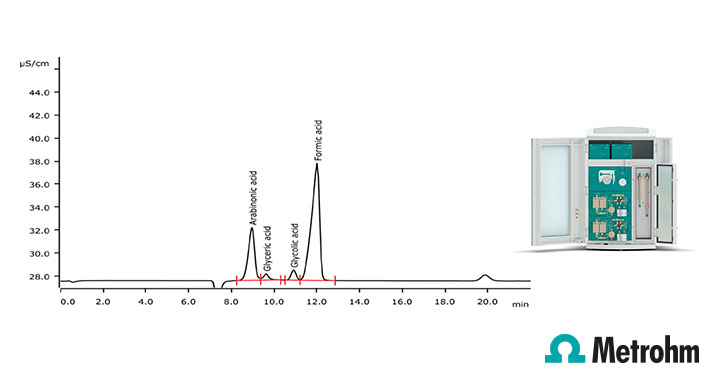Monitoring of individual organic acids with reverse suppression.
Monitoring organic acids has been a tricky concept for a long time. As they are weak, to the point of non-dissociated, with a very low conductivity, separation and quantification has always been a headache.
Yet monitoring of organic acids is important for many industries. In wastewater, larger organic acids are a primary cause of the smell. They are a key indicator of the efficiency of bioreactors and in the oil industry they provide valuable information regarding the degradation of glycols used for sample transport and processing.
As it is important to be able to quantify individual organic acids, a solution was required. Enter inverse suppression. Inverse suppression is a form of chemical suppression that chemically modifies analyte and eluent in a way that allows the conductivity detection of weak acids to be much more sensitive, while also ensuring separation in a wide range of matrices.









